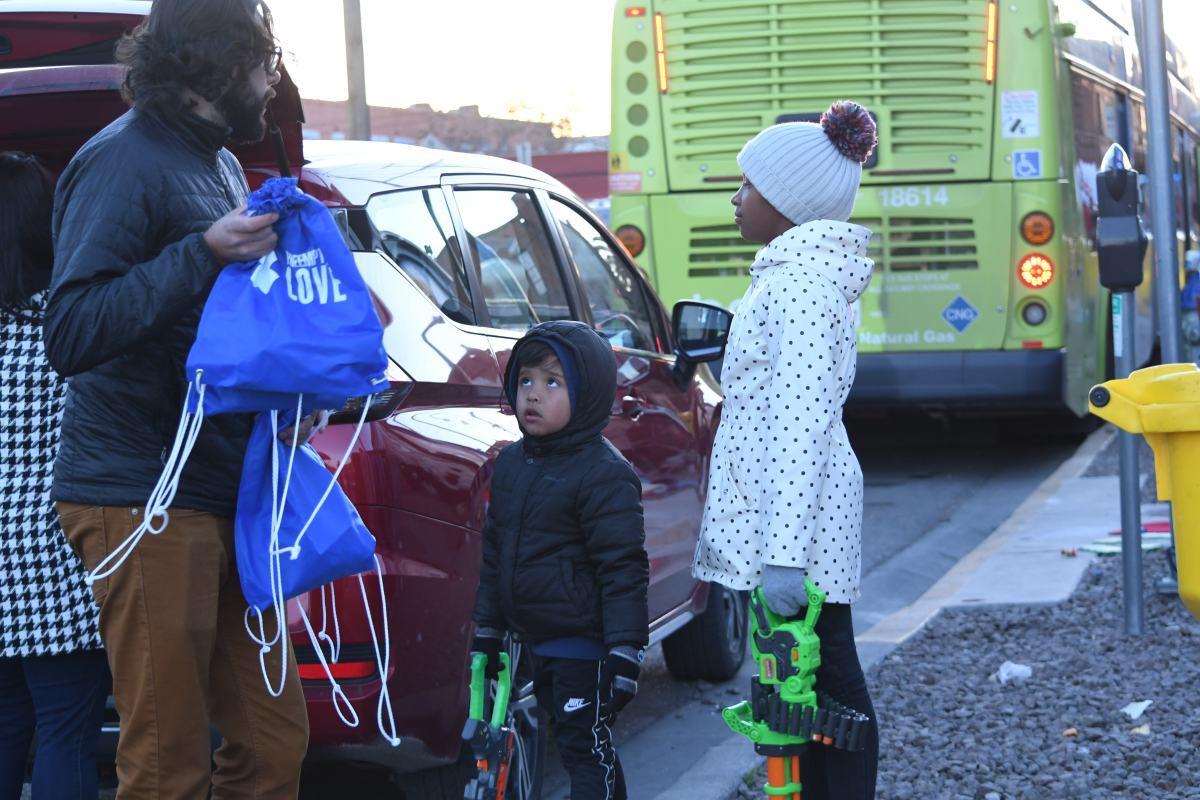You walked or, when you could afford to, took a bus through Colombia, Panama, Honduras, Nicaragua, and Guatemala. You hiked along smuggling routes, through a rainforest, and over jungle-covered mountains, sometimes in waist-high mud and water. Along the way, you faced danger: wild animals, snakes, and flash flooding. There was extortion and violence, sometimes at the hands of the cartels and sometimes at the hands of the police. You reached Tapachula and risked your life riding atop a cargo train to reach the US-Mexico border. By the time you arrived, the rules had changed once again. Now, you’re sleeping on the street, wondering what to do.
President Biden’s New Immigration Policy
One week ago, the administration announced a new border policy, which will most likely go into effect on May 11, when Title 42, a public health order used to prevent migrants, refugees, and asylum seekers from entering the US at the US Mexico border, is set to expire. The proposed policy states that a person does not qualify for asylum in the US if they have entered the country unlawfully.
The proposed policy also says that a person can be rapidly deported for two main reasons. First, a person can be rapidly deported if they do not request protection in a country they pass through on their way to the US. Secondly, people can be deported if they do not use the CBP One app to inform border authorities that they plan to seek asylum.
Rapid deportation is a crucial part of the new policy. Currently, people seeking asylum in the US sometimes wait years to have their cases processed. During this time, they can legally work even though they might later be deemed ineligible for asylum and deported. Proponents of the new policy think the ability to work legally while awaiting processing encourages false asylum claims.
What is Asylum?
The current US asylum system was set up in the aftermath of World War II and the Holocaust. Its purpose was to ensure that people would not be deported back to countries where they could be killed or persecuted based on race, religion, political beliefs, or membership in a social group.
To apply for asylum, a person must physically be in the US or seek entry into the US through a legal port of entry. However, under current US immigration law, if a person is already in the US, they can seek asylum no matter how they entered the country. Under the proposed policy, if a person enters the country unlawfully, they are ineligible for asylum. The new legislation makes it easier for the government to deport border crossers who claim persecution or fear of persecution in their home countries.
The CBP One App
The Customs and Border Protection (CBP) One app is a free mobile application for people without proper documentation seeking entry to the US through one of the southwest border land crossings. People upload their documents before requesting an appointment time at one of eight land crossings along the US-Mexico border. This app allows people to request entry based on humanitarian exceptions while Title 42 remains in effect.
The CBP One APP is overloaded with people seeking appointments. The app opens at 6 am for appointments and only schedules them for up to two weeks out. People who aren’t lucky enough to find space at a shelter are left to wait for weeks, sleeping on the street.
There are also user glitches. When vulnerable people try to use the app, they often receive messages such as “Time Slot Full,” “System Error,” or “Unable to Verify Location,” even though people are physically at the border, trying to apply.

During a recent hygiene kit distribution at the border, we discovered that many of our migrant friends did not have mobile phones when they reached the border and couldn’t access the app. Also, unaccompanied minors cannot apply for an appointment through the app. They need a legal guardian to apply.
How You’re Helping

Students enjoy a nourishing lunch in the middle of their school day in Venezuela. Photo by Jonathan Lanza for Preemptive Love. 
Preemptive Love team member Lenín makes friends with two boys patiently waiting their turn to fill containers with water. Photo by Harold David Brito Ortega for Preemptive Love. 
Osvaldo’s shop looks primitive, but he consistently turns out beautifully polished creations from Mexican marble. Photo by Haniel Lopez/Preemptive Love
Migration is one of the most urgent issues of this century. You’re helping to stabilize communities in Venezuela, Colombia, and Mexico so people do not have to leave home. You’ve brought education support and food relief to Venezuela, fresh water, medical services, and affordable food to Colombians, and supported Mexican artists to keep their businesses thriving..
You’ve also shown up for those who’ve had to flee with hot meals (provided by a Venezuelan migrant-owned business in Tapachula) and hygiene kits to restore dignity. You’re building sustainability into relief programming with chicken coops and smiles. Thank you because none of this would be possible without you.

Pabellón criollo, a satisfying meal of white rice, shredded, stewed beef, black beans, grated cheese, and fried plantain. Photo by Haniel Lopez for Preemptive Love. 
Manuel, one of our program officers, handing out hygiene kits to children in El Paso. Photo by Martin Renova for Preemptive Love. 
One of our migrant friends hThe baby chicks, bringing sustainability to our farm project. Photo by Octavio Villatoro for Preemptive Love.
Although we have accomplished so much together, there is still so much to be done. Join us as we build peace in partnership with our communities and migrant friends.
Join us in supporting those seeking safety and stabilizing others so they never have to leave.
